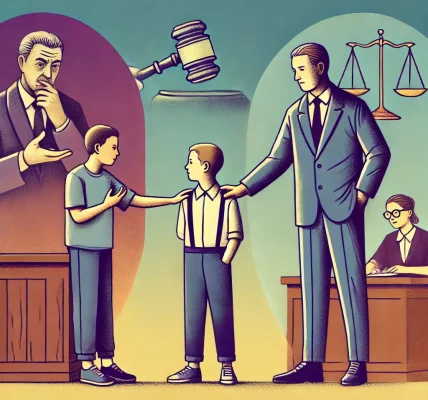Child custody laws play a crucial role in ensuring the well-being of children during and after parental separation. These laws determine the rights and responsibilities of parents and guardians regarding the upbringing, care, and financial support of their children. This article provides a comprehensive, SEO-friendly, and audience-engaging overview of child custody laws while maintaining a neutral, legally safe perspective.
What is Child Custody?
Child custody refers to the legal and practical relationship between a parent (or guardian) and a child. It involves making decisions about the child’s education, healthcare, upbringing, and general welfare. Custody can be classified into different types, depending on legal jurisdiction and circumstances.
Types of Child Custody
- Physical Custody – Determines where the child will reside and which parent will be responsible for daily care.
- Legal Custody – Grants the right to make important decisions regarding the child’s upbringing, education, and healthcare.
- Sole Custody – One parent has full legal and physical custody, while the other may have visitation rights.
- Joint Custody – Both parents share legal and/or physical custody, allowing them to make decisions together.
- Temporary Custody – Granted for a specific period, often during divorce proceedings.
- Third-Party Custody – Awarded to a non-parent (such as a grandparent) when the biological parents are deemed unfit.
Legal Considerations in Child Custody Cases
Child custody laws vary by country and state, but courts generally consider the following key factors when deciding custody arrangements:
1. Best Interests of the Child
The primary factor in custody cases is what serves the child’s best interests. Courts evaluate the child’s emotional, educational, and physical needs while ensuring a stable and safe environment.
2. Parental Capability
Courts assess each parent’s ability to provide proper care, including financial stability, mental and physical health, and parenting skills.
3. Child’s Preference
Depending on the child’s age and maturity level, their preference may influence the court’s decision. Older children are often allowed to express their wishes regarding custody.
4. History of Abuse or Neglect
Any history of domestic violence, child abuse, or neglect can significantly impact custody decisions. Courts prioritize the safety of the child in such cases.
5. Parental Cooperation & Communication
The ability of parents to cooperate and communicate effectively for the child’s benefit is considered when awarding joint custody.
6. Existing Parent-Child Relationship
The strength of the existing relationship between the child and each parent plays a vital role in determining custody.
Rights of Parents & Guardians in Child Custody Cases
Parents and legal guardians have specific rights under custody laws. These rights vary based on the custody arrangement but generally include:
- The right to seek custody or visitation.
- The right to make important decisions about the child’s life (if legal custody is granted).
- The right to receive child support from the non-custodial parent.
- The right to request a modification in custody arrangements if circumstances change.
- The right to a fair legal process in custody disputes.
How Courts Determine Custody Arrangements
The court follows a structured process to decide child custody. This process may include:
1. Filing a Custody Petition
A parent or guardian must file a formal request with the family court to initiate custody proceedings.
2. Mediation & Negotiation
Many courts encourage mediation to help parents reach an amicable agreement before going to trial.
3. Custody Evaluation
A court-appointed evaluator may assess each parent’s living situation and interaction with the child.
4. Court Hearings
If mediation fails, a judge will conduct hearings to determine the final custody arrangement.
5. Final Custody Order
The court issues a legally binding custody order outlining the terms of custody and visitation.
Modifying a Child Custody Order
Child custody orders are not always permanent. Parents can request modifications due to:
- A significant change in circumstances (e.g., relocation, financial hardship, remarriage).
- Evidence of abuse or neglect.
- The child’s changing needs or preferences.
Common Myths About Child Custody Laws
Myth 1: Mothers Always Get Custody
While historically courts favored mothers, modern laws prioritize the best interests of the child, regardless of gender.
Myth 2: Joint Custody Means Equal Time
Joint custody does not necessarily mean a 50/50 time split; it depends on various factors, including logistics and the child’s needs.
Myth 3: Non-Custodial Parents Have No Rights
Even if one parent does not have custody, they may still have legal rights, including visitation and decision-making participation.
Conclusion
Understanding child custody laws is essential for parents and guardians navigating custody disputes. Each case is unique, and legal decisions prioritize the child’s best interests. If you are involved in a custody case, seeking legal advice from a qualified attorney is highly recommended to ensure your rights and the child’s well-being are protected.




